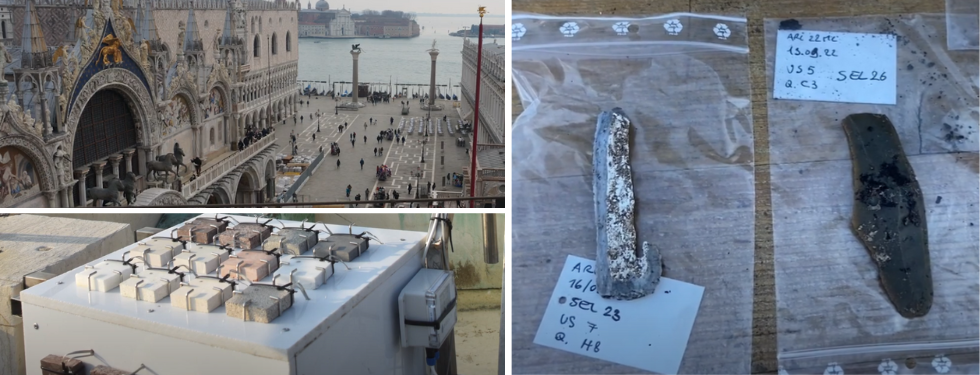Archaeometry and cultural heritage vulnerability and protection

Archaeometry is a branch of science that deals with the application of scientific techniques and approaches from different disciplines (earth sciences, chemistry, biology, physics, etc.) to study archaeological specimens, and address archaeological questions. These include the identification and characterisation of natural and artificial materials (e.g. stone, pottery, plaster, mortar, pigments, metal, glass, organic material), the determination of their provenance, of the production technology, and of their age, e.g. through radiocarbon dating.
Often the use of non-destructive approaches with portable analytical equipment is necessary to avoid damaging the artefacts. A substantial group of researchers is working on these topics at the Department of Geosciences.
Another important focus of this research line is the analysis of deterioration processes and factors affecting the materials used in the cultural heritage, with the final goal to assess their vulnerability (e.g. to the increased frequency of extreme events due to climate change) and contribute to their protection. Researchers also include the setup of specifically designed laboratory programs of accelerated aging tests and field exposure tests, both in the subaerial environment and underwater.
Professors coordinating and developing projects related to this research pathway: Gilberto Artioli, Chiara Coletti, Luigi Germinario, Elena Ghezzo, Lara Maritan, Claudio Mazzoli, Cristiano Nicosia, Raffaele Sassi, Alberta Silvestri





